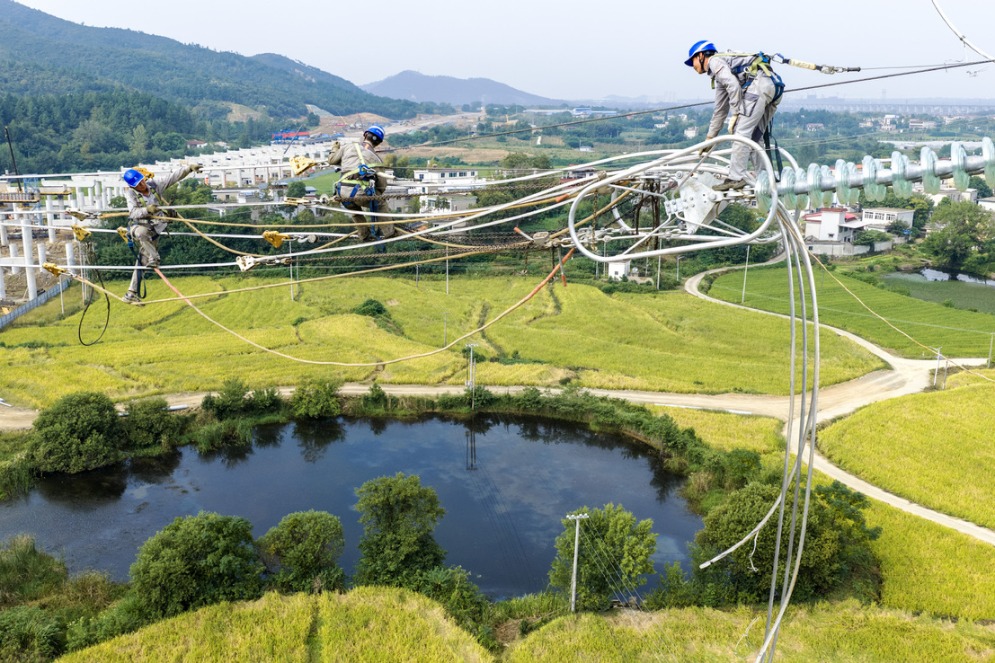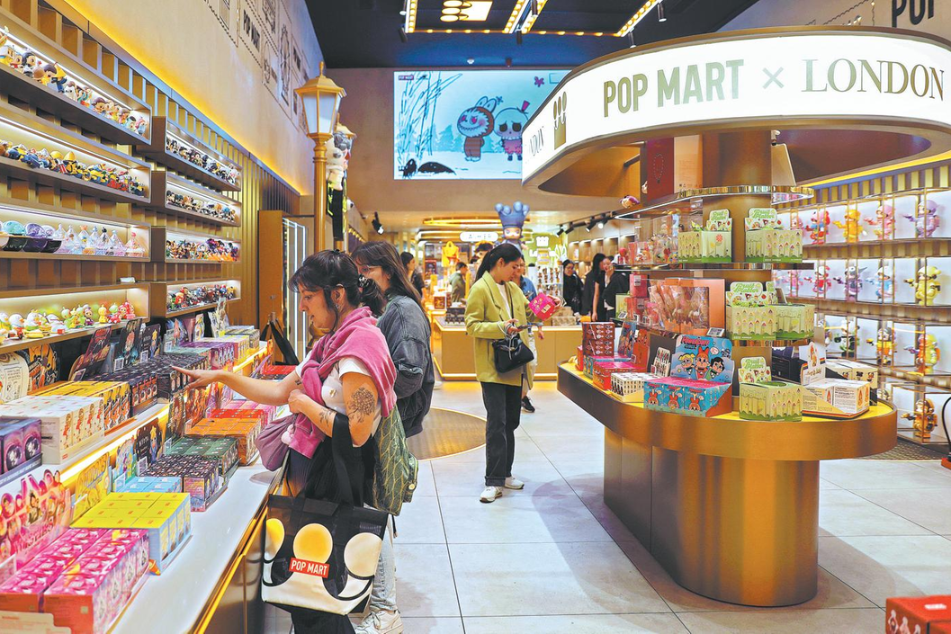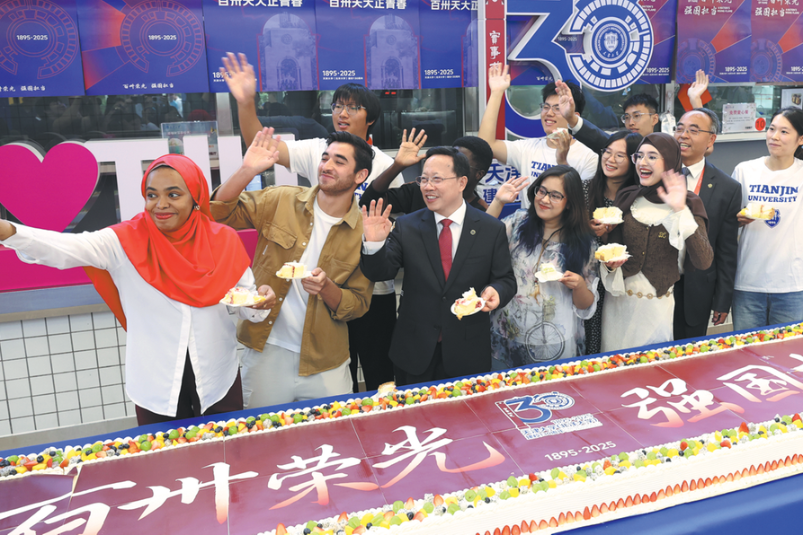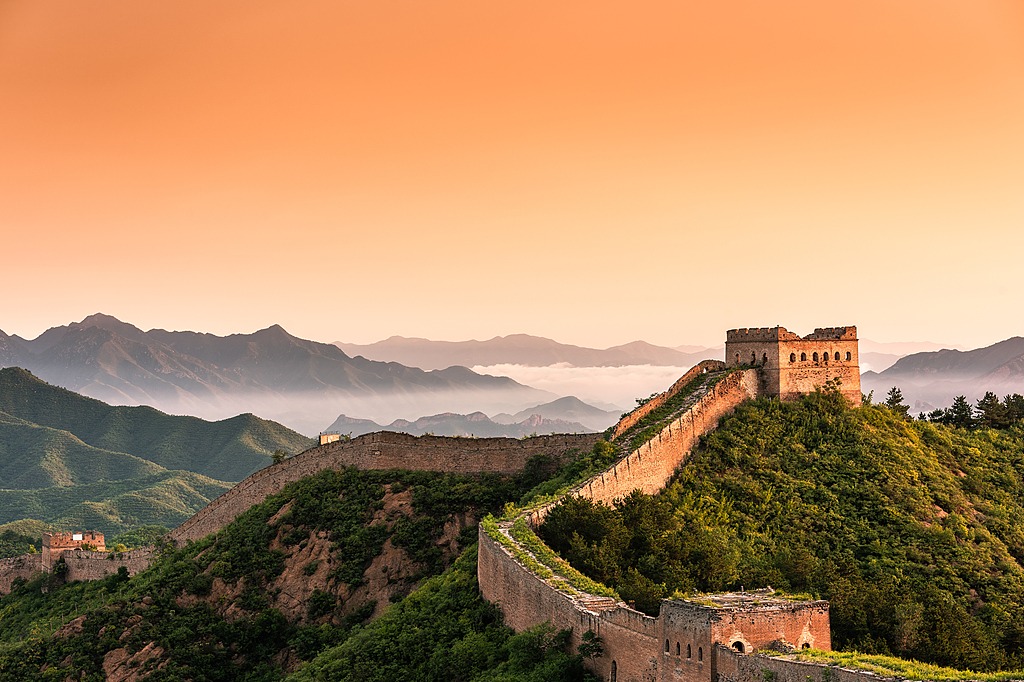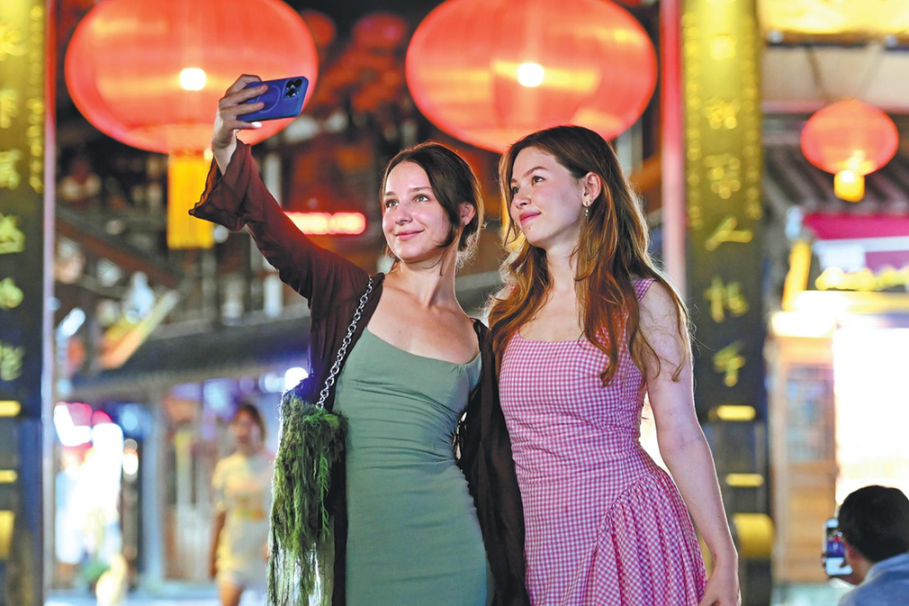China experiences surge in immersive, culture-driven tourism

The Recluse Dongpo, a large-scale virtual-reality immersive experience, premiered at Hainan Museum in May, attracting eager fans of iconic Song Dynasty (960-1279) poet Su Shi (1037-1101) to embark on a virtual journey through centuries of Chinese history.
Wearing VR headsets, participants view a digital rendition of Su Shi (also known as Su Dongpo), who vividly recounts his dramatic life — from political exile to literary legend — in an interactive narrative.
This fusion of technology and tradition exemplifies China's ongoing reinvention of cultural tourism. The country is witnessing a surge in heritage-driven travel, where films, live performances, and immersive experiences spawn compelling new destinations.
According to a recent survey by the China Tourism Academy, travelers are showing a growing interest in cultural activities. Nearly 29.2 percent of respondents prioritize cultural experiences in their itineraries, while 78.3 percent express general enthusiasm for such engagements when traveling.
Cultural spaces serve as new settings for tourism experiences and consumption, and tourism spaces also function as new platforms for cultural displays and dissemination, says Li Xinjian, executive dean of the Capital Institute of Culture and Tourism Development at Beijing International Studies University.
In a major government reshuffle in 2018, China merged two government agencies and formed the Ministry of Culture and Tourism "to promote the integrated development of cultural undertakings, cultural industries and tourism", according to an official document. The development of culture-driven tourism has since picked up.
A 2023 high-level meeting on cultural development underscored the need to promote the "creative transformation and innovative development of China's fine traditional culture".
Governments at all levels are tapping into local resources to enhance tourist appeal and boost the economy. During the Dragon Boat Festival holiday from May 31 to June 2, Beijing held more than 1,700 tourism events, including dragon boat carnivals, intangible cultural heritage markets, and hanfu (traditional Chinese attire) workshops.
The capital recorded 8.21 million tourist visits during the holiday, up 5.4 percent year on year, generating 10.77 billion yuan ($1.5 billion) in tourism revenue.
Traditional festivals prove to be high seasons for travelers. This year, during the first Spring Festival following its inscription on UNESCO's Intangible Cultural Heritage list, travelers flocked to temple fairs, dragon dance performances, and intangible cultural heritage experiences to celebrate an authentic Chinese New Year.
The 2025 Aranya Theater Festival, which will open in the coastal city of Qinhuangdao in North China's Hebei province, will stage 29 theatrical productions from 12 countries. Activities, such as art exhibitions and workshops, will also be held at the city's Aranya resort.
The festival's 2024 edition received about 164,000 visitors, including foreign travelers.
With improvements in people's living standards and increased travel opportunities, demand is growing for cultural experiences during tourism, and participation takes diverse forms, says Dai Bin, president of the China Tourism Academy.
Museums, historical cities, ancient towns, cultural districts, live-action shows, concerts and music festivals are major attractions for tourist destinations, Dai adds.
A government initiative to boost cultural and tourism consumption was launched earlier this year. It proposed specific measures, such as encouraging public cultural institutions to actively develop cultural experiences, arts education services, and other offerings, enriching the supply of cultural and entertainment products, and allowing local governments to allocate special bond funds to support cultural and tourism projects.
According to Dai, China plans to further focus on the integrated development of culture and tourism to boost the tourism sector.
Xinhua

Today's Top News
- Xi, Singaporean president exchange congratulations on 35th anniversary of diplomatic ties
- Holiday boosts box office ambitions
- Plan to raise rewards for violation tips seen as big market boost
- China condemns US veto in UN of Gaza resolution
- Xi congratulates Tianjin University
- Newly developed 'NeuroWorm' a breakthrough
















